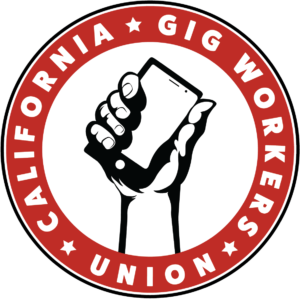A BILL WITH potentially huge implications for the so-called gig economy is making its way through the California state legislature this summer, laying bare cleavages within the labor movement. Companies like Uber and Lyft are seeking a workaround to the legislation, which would classify their drivers as employees rather than independent contractors, opening the door to a host of employment benefits. Some prominent labor unions, meanwhile, have been in talks with Silicon Valley, even as they voice their commitment to securing workers’ rights.
For Press
Media inquiries? Call Tim Sandoval at 213-218-5855.
Some Uber and Lyft drivers are going public to demand an equal say in negotiations over whether they will become employees or remain independent contractors. As California lawmakers weigh a bill that could change the drivers’ status, Uber, Lyft, labor leaders and government officials have been thrashing out ideas in formal talks, but drivers have not been present. They have, however, participated in other meetings with the governor’s office and unions who’d like to represent the drivers.
Gig economy workers are increasingly ubiquitous, shuttling us to appointments and delivering our food while working for Uber, Lyft, DoorDash and others. Thanks in large part to the app-based tech boom emanating from this city, 36% of U.S. workers participate in the gigeconomy, according to Gallup. But not all gigs are created equal, Gallup adds, noting that so-called “contingent gig workers” experience their workplace “like regular employees do, just without the benefits of a traditional job — benefits, pay and security.”
Hundreds of independent contractors traveled to Sacramento to protest in support of California’s gig-work bill that would reclassify them as employees, which passed the state Senate’s Labor, Public Employment and Retirement Committee. Assembly Bill 5 would order the Dynamex Decision, which gives workers who are misclassified as independent contractors — such as Uber, Lyft and Postmates drivers — the classification as employees to receive the same basic benefits that employees have, such as workers’ comp, unemployment insurance and minimum wage, said Steve Smith of the California Labor Federation.
Fighting to stave off a bill that could force them to treat their workers as employees, Uber and Lyft this week deployed an unusual weapon: a promise of extra pay to drivers willing to lobby on their behalf. Calling for changes to a bill that would allow drivers to continue working as independent contractors while being afforded some of the protections typically reserved for employees, the ride-hailing companies recruited drivers to rally outside the state Capitol on Tuesday ahead of a Senate labor hearing on the bill.
It was clear almost from the first that the California Supreme Court, in a ruling in April 2018, threw the business models of Uber and Lyft companies for a loop. The thrust of the ruling was that drivers for those companies had been improperly classified as “independent contractors” when in fact they’re employees, entitled to most of the benefits and legal protections employees receive. Things only looked worse for the companies when the Legislature started considering a bill to enshrine the court ruling into law.
The battle between California lawmakers and major employers, like Uber and Lyft, is heating up. A bill that could have a big impact on “gig” economy workers is moving forward but not everyone’s on board. Supporters of AB5 crowded Capitol hallways Wednesday. Dozens of Uber and Lyft drivers along with labor unions urging lawmakers to pass the measure that would redefine many independent contractors as employees.
A proposed law that would force companies to treat their independent contractors like full-time employees is dividing California workers, with some demanding a path to benefits and others fighting for the freedom that comes with a flexible schedule. At the crux of the argument is Assembly Bill 5, which would codify the California Supreme Court’s 2018 “Dynamex” decision that limits when companies can classify workers as independent contractors and deny them employment benefits.
On many mornings, Minda Aguhob, a Harvard-educated data scientist who started driving for Uber and Lyft five years ago as she struggled to find a job, opens her Uber app around 6 o’clock, hoping to hear the familiar ping of a ride request from her first passenger of the day. Wednesday morning was different. At that hour, Aguhob, along with 30 or so of her fellow Uber and Lyft drivers, was piling onto a bus parked outside the West Oakland BART station to make the hour-and-a-half drive to Sacramento.
A road rally at the State Capitol on Tuesday produced dozens of Uber and Lyft drivers. They gathered to drive home a point — they want to remain independent contractors behind the wheel. “You can control your hours,” said Roy Hawke, an Uber and Lyft driver from Sacramento. “If you’re an employee, you don’t set those hours. And, if things change up, things might not work out for me and I might not have Uber and Lyft as my income.”
